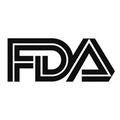FDA Grants Orphan Drug Status to Novel Bcl-2 Inhibitor in Follicular Lymphoma
The FDA has granted an Orphan Drug Designation to the novel Bcl-2 inhibitor, APG-2575, for the treatment of patients with follicular lymphoma.

The FDA has granted an Orphan Drug Designation (ODD) to the novel Bcl-2 inhibitor, APG-2575, for the treatment of patients with follicular lymphoma (FL), adding to the drug’s collection of ODDs including for the treatment of patients with Waldenström macroglobulinemia (WM), chronic lymphocytic leukemia (CLL), multiple myeloma (MM), and acute myeloid leukemia (AML).1
According to a press release from the developer of APG-2575, Ascentage Pharma, the agent was designed to treat both hematologic malignancies and solid tumors. APG-2575 works by selectively blocking the antiapoptotic protein Bcl-2, thus revitalizing the normal apoptosis process in cancer cells. The agent is under clinical development in China, Australia, and the United States. Clearances for phase 1b/2 clinical trials have been granted for these regions.
"This ODD from the FDA is the fifth one granted to APG-2575, a key drug candidate in our apoptosis-targeting pipeline, also the tenth obtained by the company. This latest designation enhances our leadership position in terms of the number of ODDs obtained by any Chinese biopharmaceutical company, further demonstrating our capabilities in innovation globally," said Yifan Zhai, MD, PhD, chief medical officer of Ascentage Pharma, in a statement.
Relative to the treatment of FL, APG-2575 in combination with ibrutinib (Imbruvica) showed synergy in xenograft models. Notably, the combination also achieved synergy in xenograft models of diffuse large B-cell lymphoma (DLBCL). In addition, the models suggested that there was no drug-drug interaction between the 2 agents. Responses were also durable through the end of the study.2
APG-2575 will also be evaluated as a single agent in a United States–based study in up to 90 patients with hematologic malignancies (NCT03537482). The goal of the multicenter, open-label, phase 1 study is to determine the safety, tolerability, pharmacokinetics, and pharmacodynamics of APG-2575 in patients with MM, CLL, lymphoplasmacytic lymphoma, AML, and non-Hodgkin lymphomas such as mantle cell lymphoma, DLBCL, and WM.
The primary end point of the study is maximum-tolerated dose and the secondary end points are maximum plasma concentration, the area under the plasma concentration versus time curve, and the antitumor effect of APG-2575.
To be eligible for inclusion in the study, patients must have histologically confirmed disease that is relapsed, refractory, or intolerant to available therapies. Patients are also required to have a life expectancy of≥ 3 months, an ECOG performance status of0 to 1 in the dose-escalation phase of 0 to 2 in the dose-expansion phase, as well as adequate bone marrow function, laboratory parameters, renal, and liver function.
"We hope the FDA's policy supports for orphan drug development will enable us to further accelerate the clinical development of APG-2575 and other ODD designated drug candidates in our pipeline, which hopefully can soon bring novel therapeutics to patients in need,” Zhai added.
References:
1. Ascentage Pharma announces the fifth Orphan Drug Designation Granted to Bcl-2 inhibitor APG-2575 by the US FDA, and the tenth obtained by the company. News release. Ascentage Pharma. January 28, 2021. Accessed January 29, 2021.
2. Fang D, Zhai G, Gu S. et al. Abstract 2058: BCL-2 selective inhibitor APG-2575 synergizes with BTK inhibitor in preclinical xenograft models of follicular lymphoma and diffuse large B-cell lymphoma. Cancer Res. 2019;79(suppl 13):2058. doi:10.1158/1538-7445.AM2019-2058
Does Odronextamab Show Hope in FL and DLBCL Despite Regulatory Hurdles?
November 5th 2024Despite regulatory challenges from the FDA, odronextamab has received European approval for the treatment of patients with relapsed/refractory follicular lymphoma or diffuse large B-cell lymphoma following 2 prior treatments.
Read More
Phase 3 Trial of Tafasitamab in Follicular Lymphoma Meets Primary End Point
August 16th 2024The phase 3 inMIND trial evaluating tafasitamab in combination with lenalidomide and rituximab in relapsed or refractory follicular lymphoma showed promising progression-free survival findings, according to topline results.
Read More